International Talent Survey Finland
Our survey was crafted to gain valuable insights and identify avenues for growth within the international community of Finland.
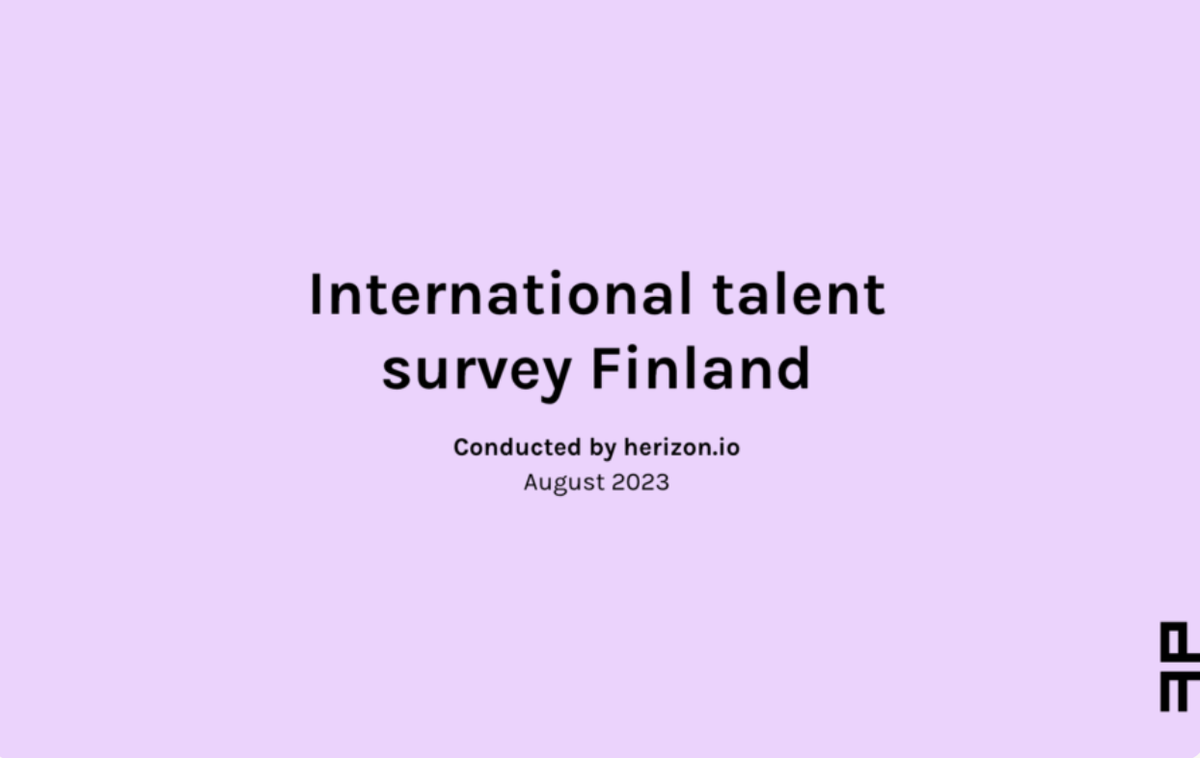
Background information
Survey Purpose:
Our survey was carefully crafted to gain valuable insights and identify avenues for growth within the international community of Finland and how we can support their journey in Finland better. Understanding demographic nuances, educational backgrounds, employment statuses, thoughts about the governments new immigration policies, and the challenges encountered when seeking employment in Finland allows us to develop tailored solutions for our international talent network.
Gratitude and Acknowledgments:
Our gratitude extends to all survey participants who took the time to share their experiences. Your contributions are important in shaping a more supportive and inclusive working ecosystem in Finland.
The number of participants: 146
Includes Qualitative & Quantitative data
Survey timeline: 1.7.-20.7.
Summary of main findings
Demographics:
60 % of the respondents identify themselves as women – rest as men.
Education:
The survey respondents are highly educated: over 95 % of the respondents have graduated either with Bachelor’s, Master’s or even Doctorate degrees.
Experience and Duration:
The experience’s shared by the respondents in the survey are from people, who have a longer experience of living in Finland, from three years up to 20 years.
Employment Status:
60 % of the respondents are employed or self-employed at the moment. 30 % are unemployed. 7 % are students or on a parental leave.
Language Proficiency:
People study or want to study Finnish: Over 80 % say that they are studying Finnish at the moment or they want / will study.
Reasons for Moving to Finland:
The most common reasons to move to Finland is to follow a spouse or to study.
Income Distribution:
Our respondents yearly salary varies and they earn 20 000 € to over 60 000 € yearly. And 26 % say they don’t have any income. Only 9.59 % earn less than 20 000 €.
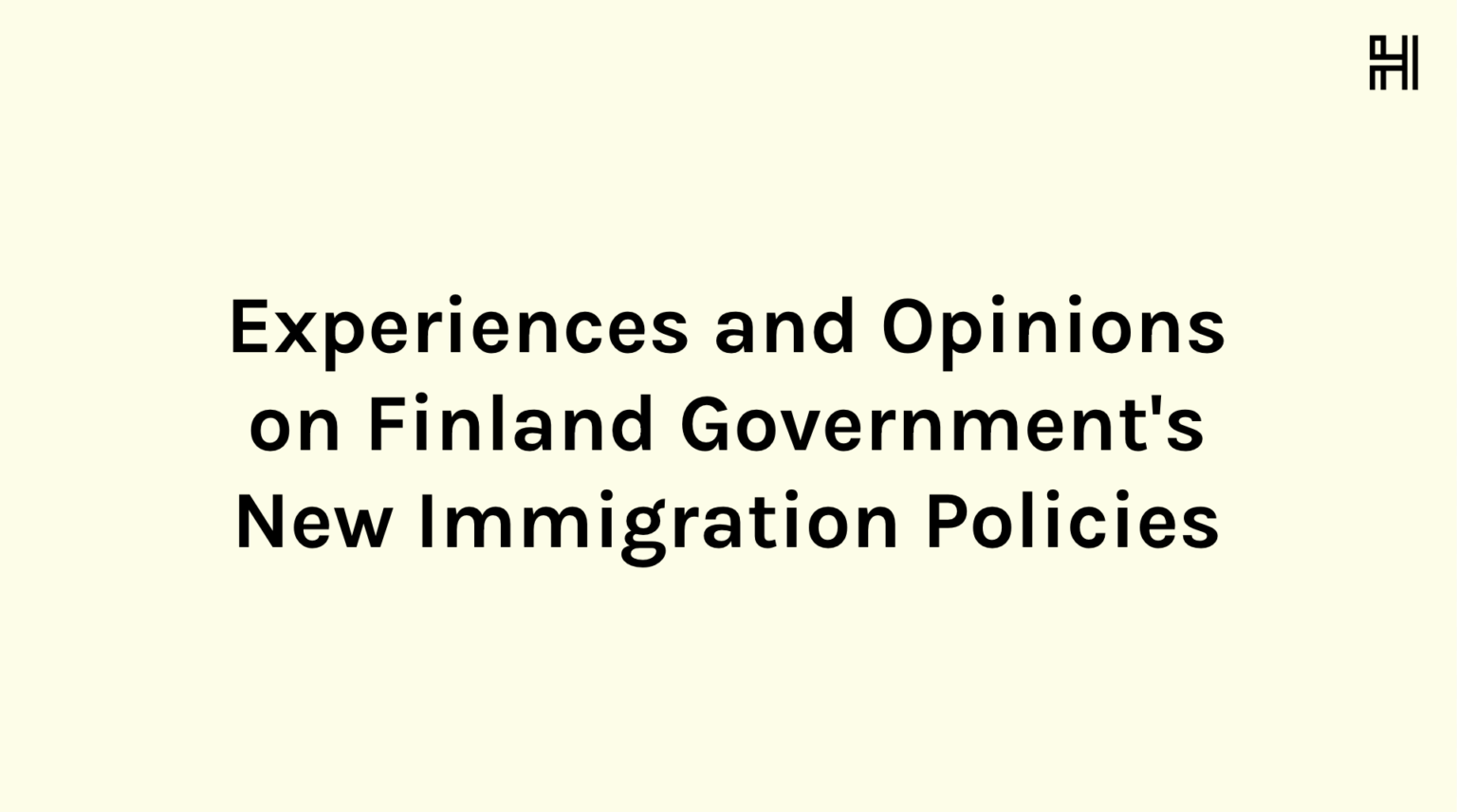
1. The new 3 month rule to find a job is unrealistic.
“I believe that 3–month’s time is impossible for an immigrant to find a job in Finland due to difficulties and job discrimination. I myself can’t get any job after 2 years of seeking and applying 120 places. Many friends of mine even took 3-4 years to land in a job.” – An unemployed woman with a Master’s degree, originally from Vietnam
“Job searching lasts more than 3 months. It is unrealistic to expect people to get a job in 3 months. That can be the idealistic case, but all immigrants I know needed more than 3 months. Besides, the hiring process takes very long.“ – An unemployed woman with a bachelor's degree, originally from Albania
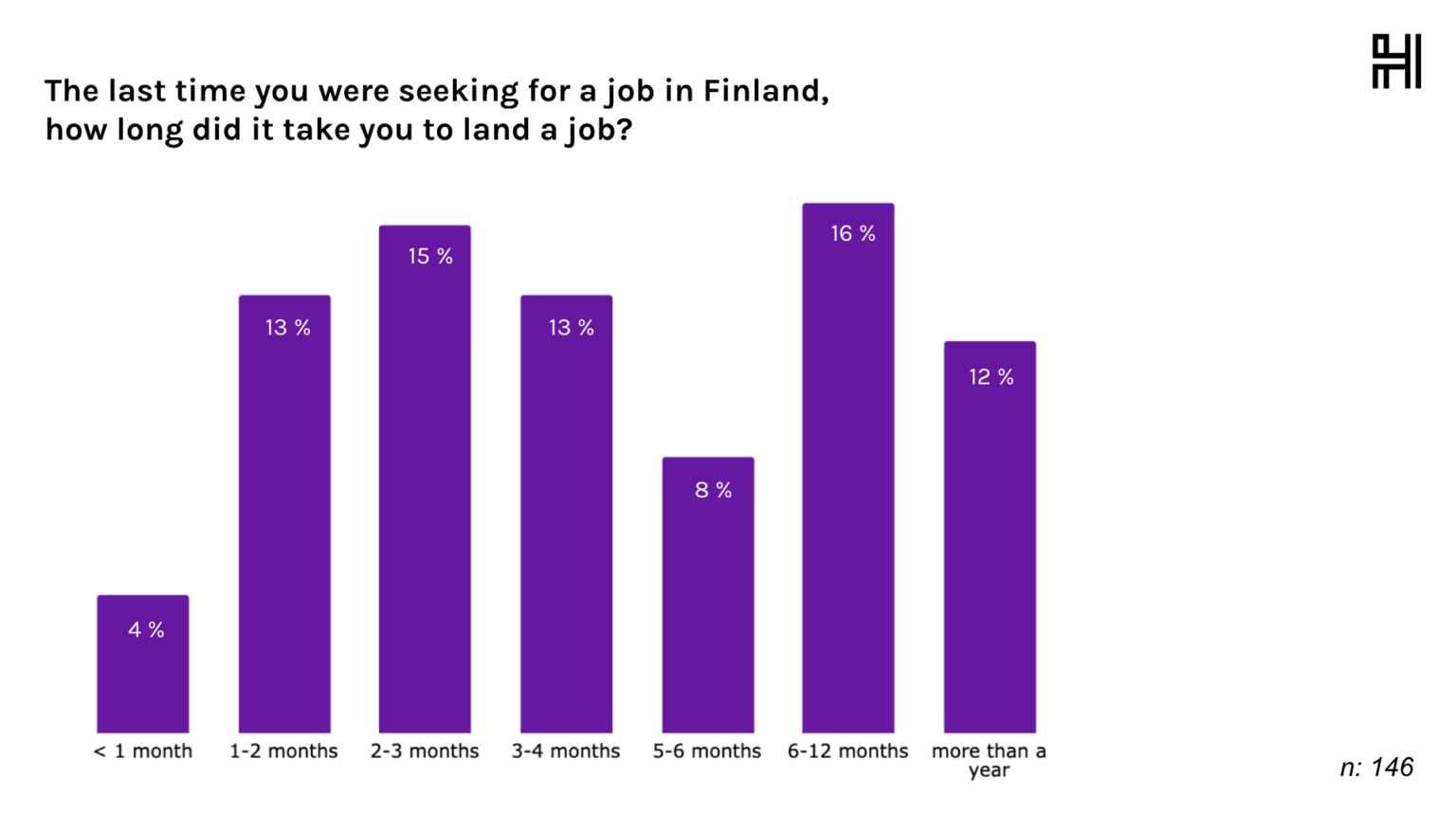
2. Immigrants are finding government’s new immigration policies scary and are considering relocation.
“Great until now. I feel needed and welcomed, my ideas and expertise are well respected. Now I am scared about the future, considering relocation to France.” – A woman, lived in Finland for 10-20 years, earning up to 60k € a year. Originally from Scotland.
“Exploring opportunities outside Finland currently” – A woman, who’s lived in Finland for 3-5 years, with a Master’s degree.
“Good, I once had a good supervisor who was fired for siding with immigrants at work. Not good, I am thinking of changing to another country. I am tired of toxic work situations in the last 3 places I have worked. It's not worth it adding to the new policies to come.” – A woman, who’s lived here for 5-10 years with a Bachelor’s degree, earning 40k-60k€ a year. Originally from Kenya.
3. Getting living basics in order, such as residence permit and bank account, can take many months.
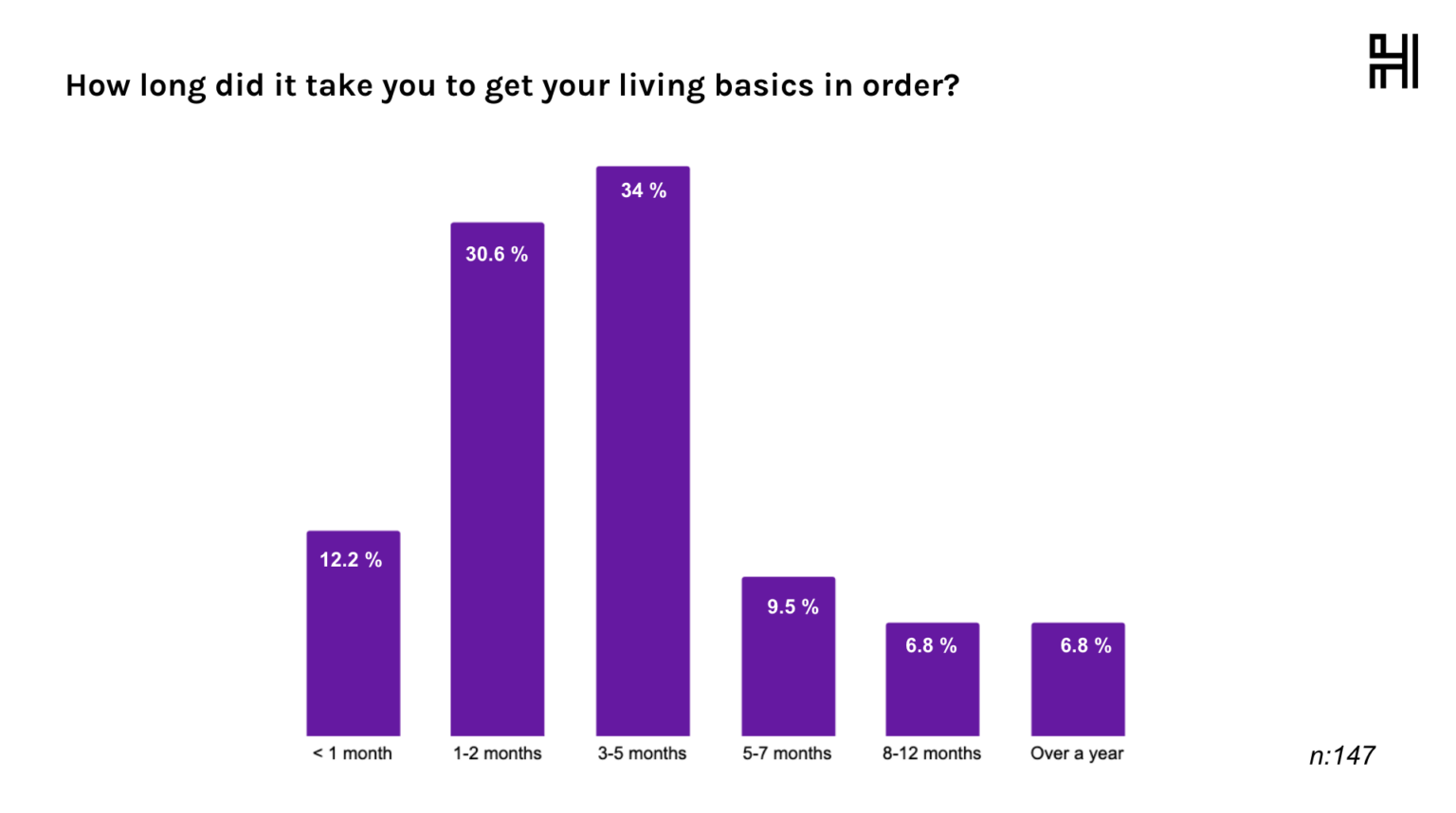

4. The job market is not open for hires coming outside of Finland, no matter what is their education or working background.
The word “Difficult” is mentioned by 19 different respondents when asked about their job seeking journey in Finland.
“Finnish employers with the exception of tech/software industry are too conservative in taking a chance with outsiders, whoever they perceive as outsiders” – An unemployed woman with a Master’s degree, originally from Vietnam
“It has been a very painful journey because i have been continuously applying 120 positions from the intern, entry-level to the junior level and all failed to get to the interview phase. In my case, I have earned 2 master’s degree in Belgium and Finland, and 18 years of marketing experience in many international companies in Vietnam before moving to Finland. However, i can’t land in any job even the intern in Finland” – A student, with a Master's degree
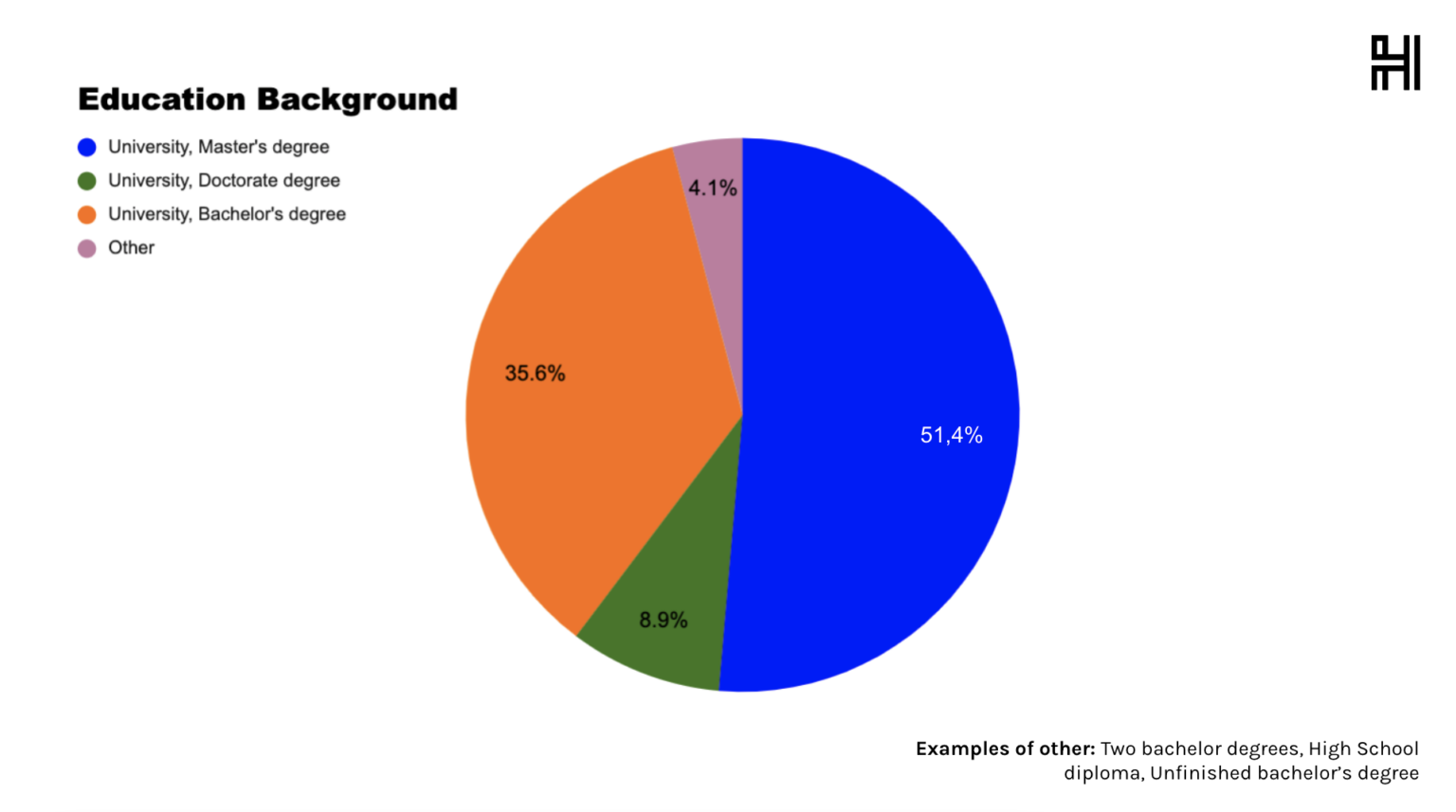
5. Landing a job or getting promoted feel like a distant dream when foreigners are battling against Finnish candidates.
“Natives are insecure in general to offer promotion to talented and well experienced expats from Asian countries.” – An employed male respondent, originally from India
“Even if you have more expertise or skills compared to other Finnish candidate, they will choose the Finnish candidate.” – An employed and a student respondent, originally from Bangladesh
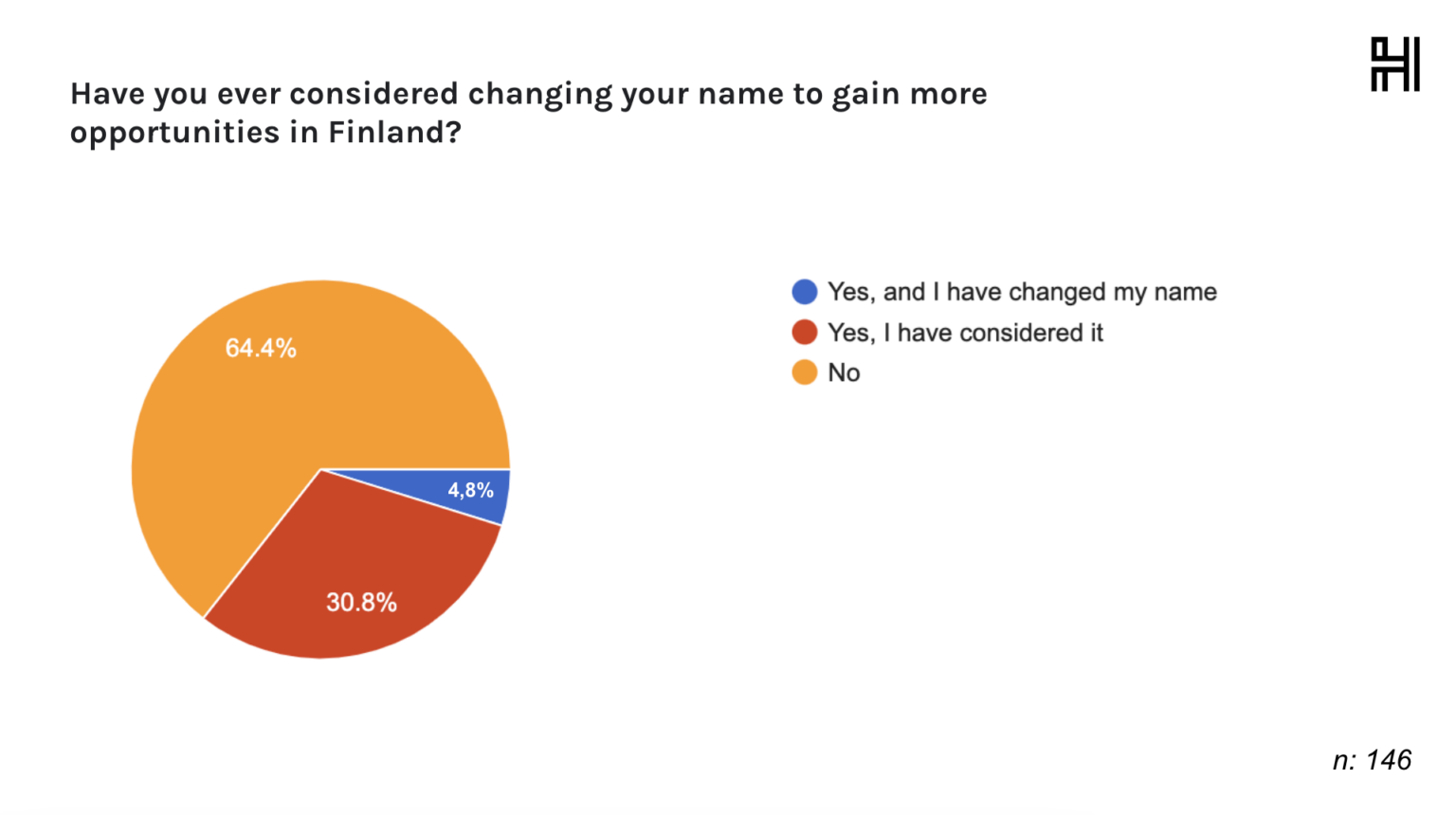
6. Startups and Tech/Software/Consulting companies are more open for people without Finnish language skills.
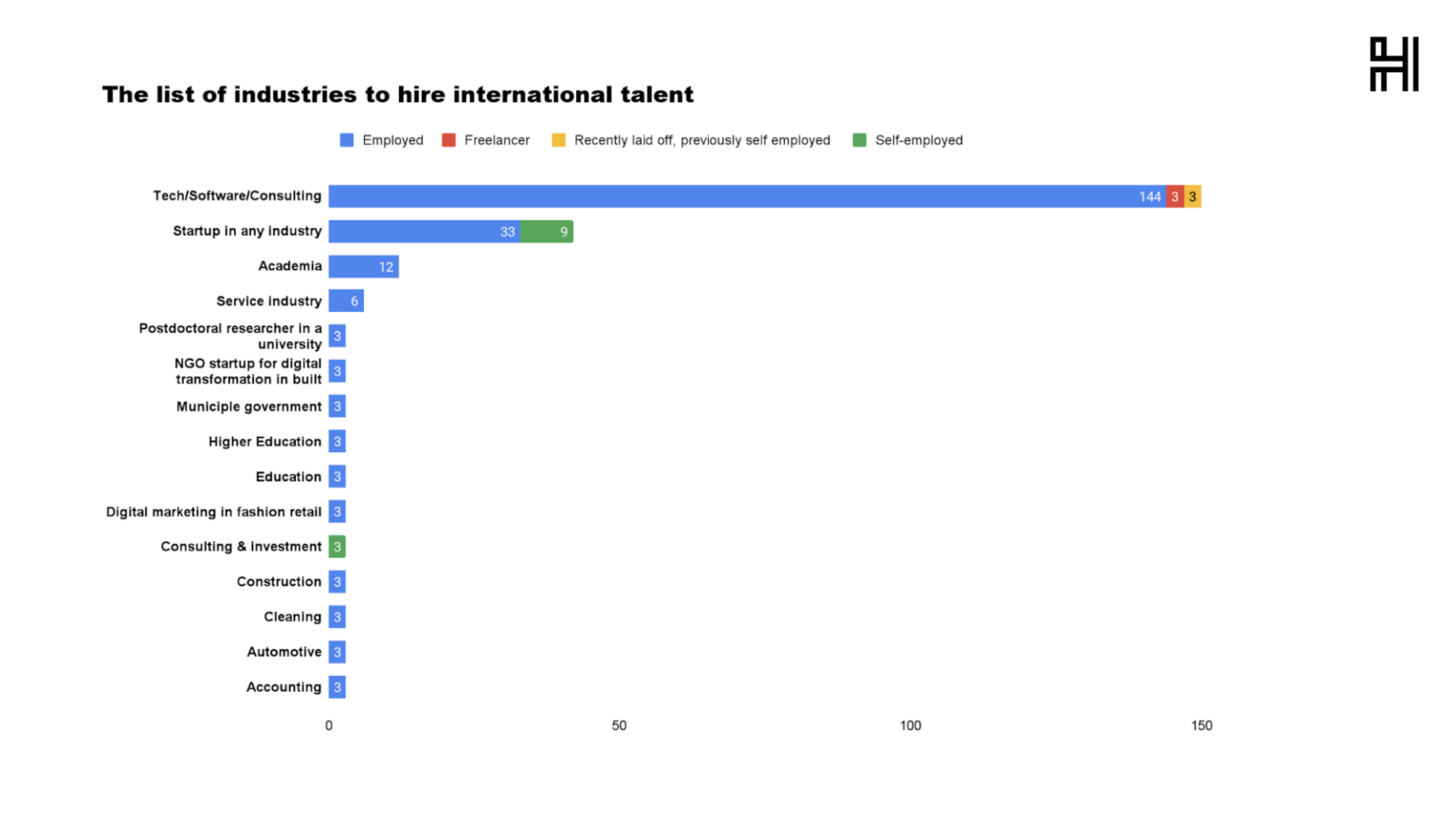
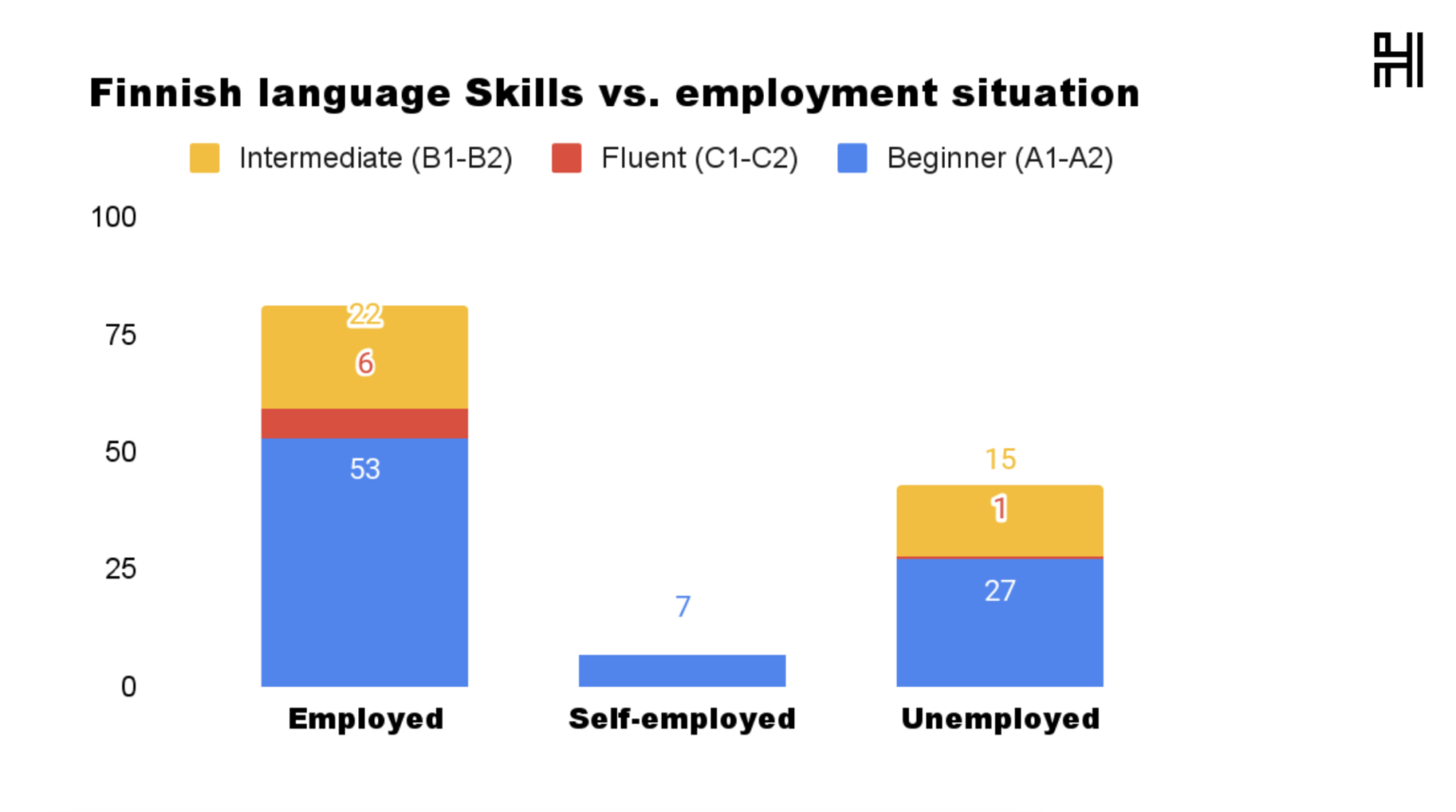
7. Companies and recruiters are requiring Finnish skills even when it’s not necessary.
Study: Reluctance to hire foreigners often reflects employers’ lack of English
“Only put Finnish proficiency as a job requirement when it is really needed to perform the job. Currently there are jobs that seems to not really need Finnish but require the person to speak fluent Finnish.” - An employed woman with Master's degree, who has lived here for 3-5 years.
“HR consultants have told me multiple times, "your broken Finnish doesn’t bother us, but clients won’t hire you". I am a software developer, programming documentation and comments are always written in english.” - A student, who's lived here 5-10 years, originally from Estonia.
“--I also see many job descriptions that require fluent Finnish even though everything seems to be in English, including the tasks." - A man, originally from Canada, who was let go from his previous company due to them having lay off's.

8. Feelings of exclusion, judgement and isolation are common within the non-Finnish population.
The word “discrimination” is mentioned by 9 different respondents when asked to describe working life in Finland.
“I worked well with more International communities. It is easy to be excluded, misinterpreted and judged among a Finns group, specially in research and services environment. “ – An employed woman within tech, originally from Brazil
“Colleagues are nice, but everyone in my team speaks fluent Finnish, so I feel isolated, even though they try to speak English in my presence (sometimes I feel guilty that I "make" everyone speak English). Also some trainings (though not those directly related to my work) were in Finnish only. “ – A female employee and student, originally from Russia
“Discrimination, being treated different to Finnish colleagues. Left out of communication.” - An employed woman, been living in Finland for over 5 years, originally from the USA
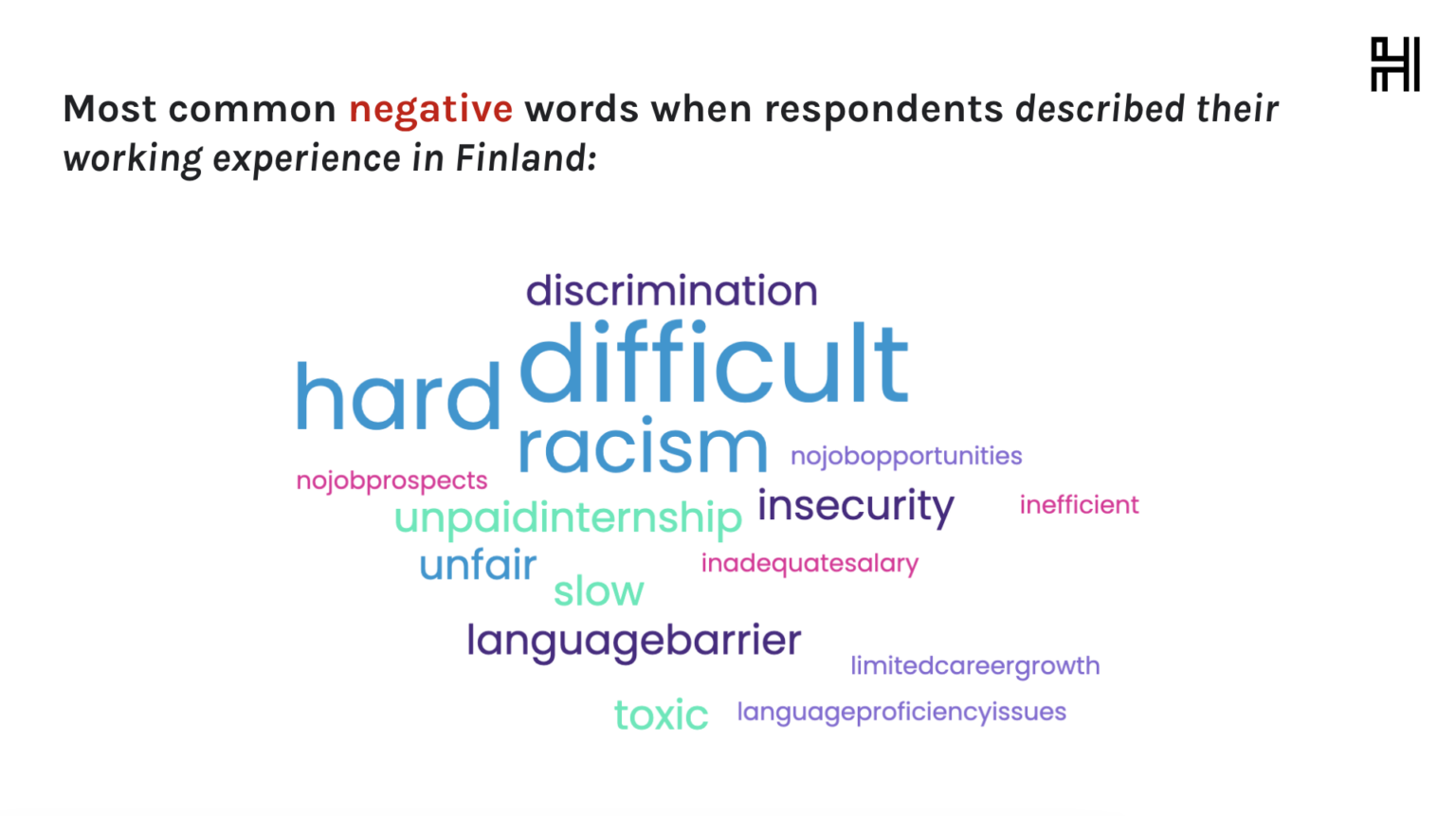
9. International talent have a strong willingness to learn Finnish.
Willingness to learn Finnish makes a big difference in outcome of job searches. In every job interview I have been asked about my Finnish language skills, and it has helped every time when I have said that I can communicate in daily life in Finnish, even though the job itself has not required Finnish skills. Immigrants should put effort to learn the local language and assimilate to local culture.“ – A male student, who's lived in Finland for 10-20 years. Fluent in Finnish, originally from Uzbekistan
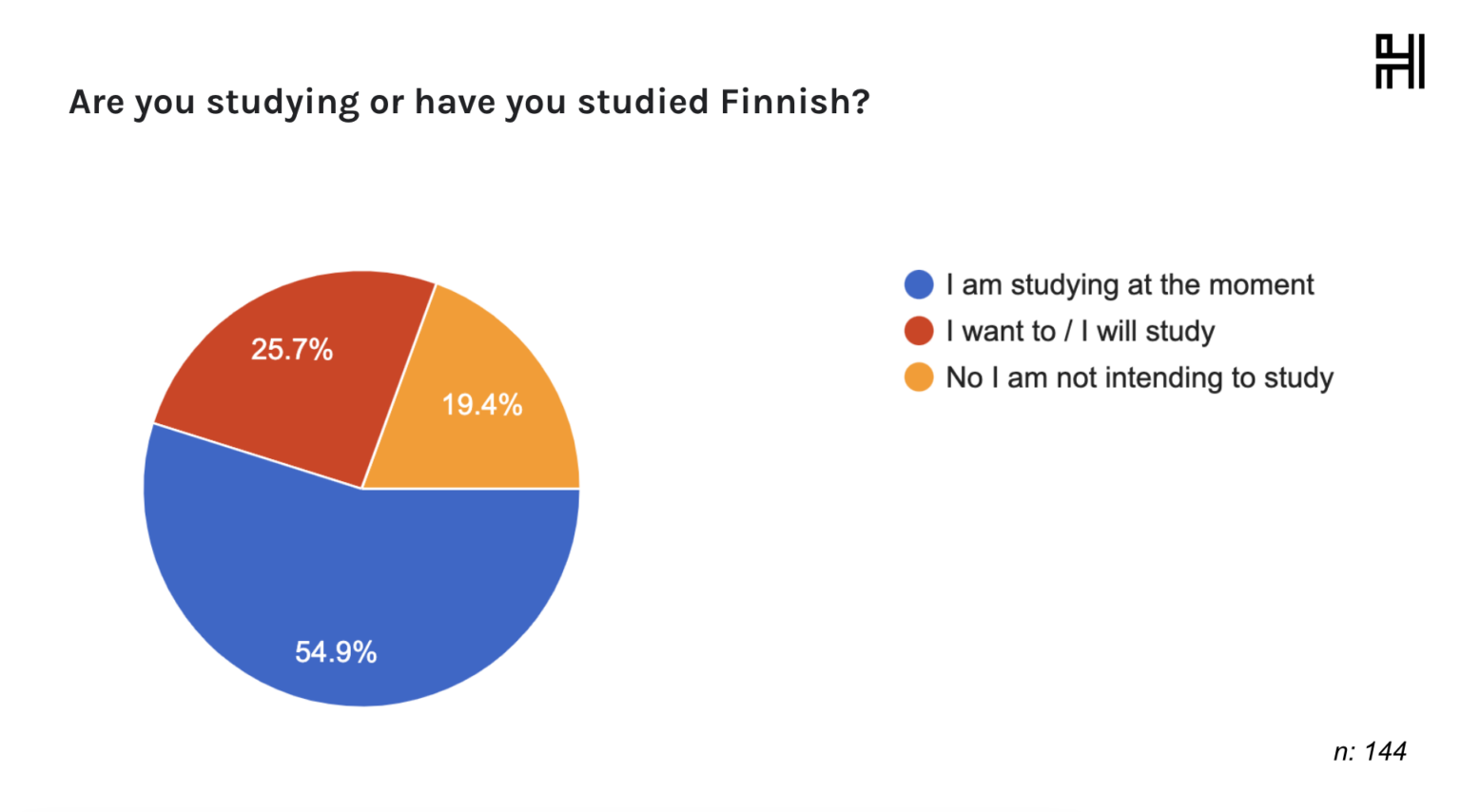
10. Immigrants find Finland having a good work-life balance.
The word “work-life balance” mentioned by 12 different respondents when asked to describe working life in Finland.
“Flexible working hours, good work life balance” – An employed woman, lived in Finland 5-10 years. Earning over 60k € a year from Tech/Software/Consulting industry.
“Good work life balance. Workplace I wish could have more energy - energy to shake the world!” – An employed man, moved to Finland 2-3 years ago for a job opportunity.
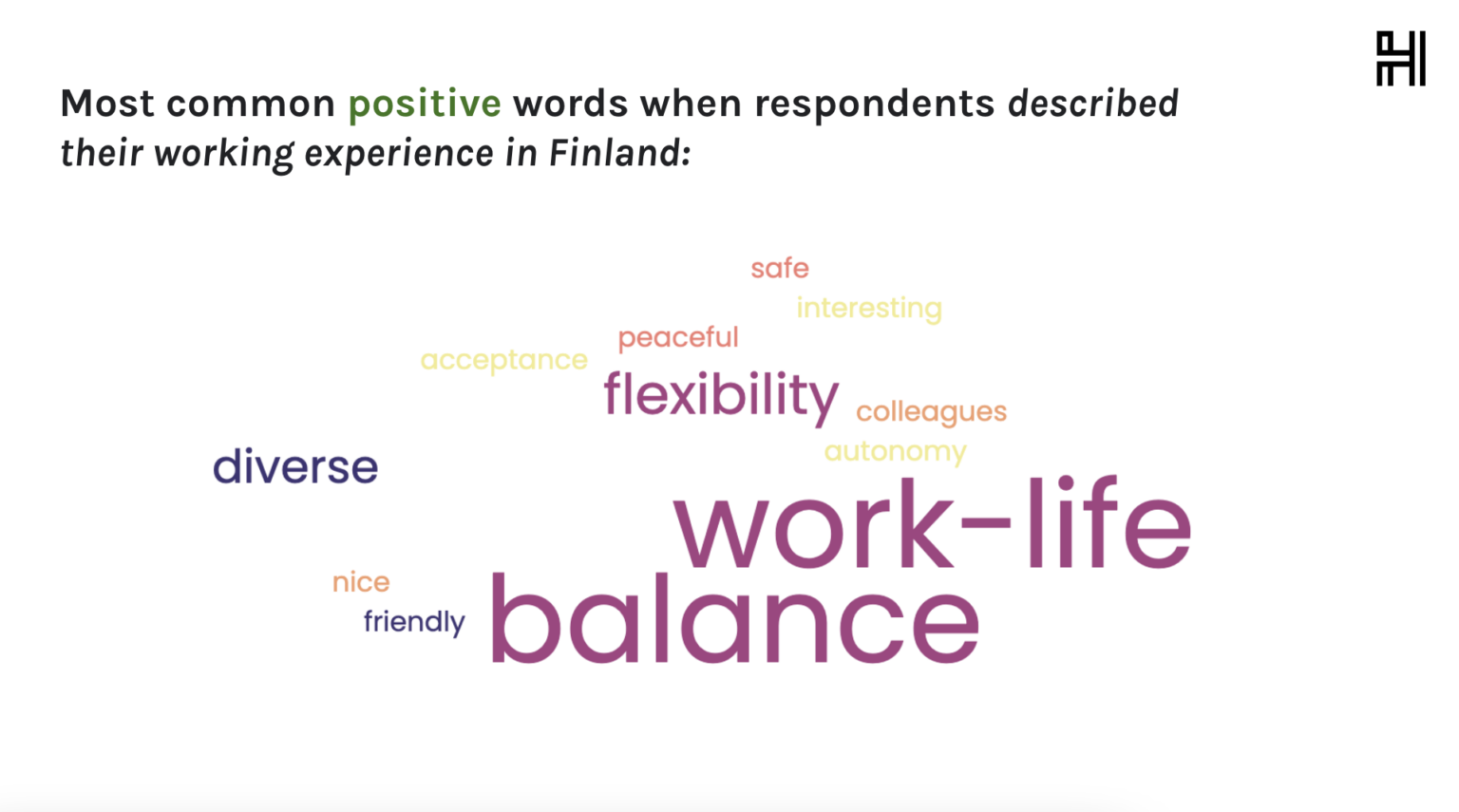
Here are our recommendations for both the government and employers on how we could make Finland more inclusive, friendly, and open for individuals coming from all around the world:
For the Government:
- Engage Immigrants and Affected Individuals: Include immigrants and those impacted by decisions in discussions, giving them the opportunity to share their experiences and opinions.
- Effective Communication: Communicate about potential changes and laws in English (and other languages) through official government letters that use accessible language. Ensure explanations encompass the ‘why’ behind changes and account for potential nuances.
- Value International Community: Take the time to genuinely understand the challenges, aspirations, wishes, and motivations of our international residents, fostering an environment that acknowledges their presence and contributions.
For Employers:
- Integration and Education: Prioritize the integration of international talent into teams and educate employees about diversity, equity, and inclusion matters. Research from BCG’s publication “Diversity in Finland” emphasizes the positive impact on business outcomes.Note: There are excellent organizations like deidei, Inklusiiv and us at Herizon that provide education on Diversity and Inclusivity matters.
- Embrace Cultural Diversity: Shift the focus from seeking “cultural fit” to embracing individuals who bring a “cultural add” to teams. This requires recognizing personal biases and implementing systems that enable recruiting teams to make decisions based on the right criteria.Recommendation: Begin recruitment anonymously. This approach has been adopted by entities such as the city of Helsinki and others. Further insights can be found in Duunitori’s article (in Finnish) and Harvard Business Review (in English).
Thanks for reading all the way here, we really appreciate it.
If you like, share this with your network and drop as comment by email. <3
Got questions or thoughts?
Mari Luukkainen
Founder of Herizon
mari@herizon.io




